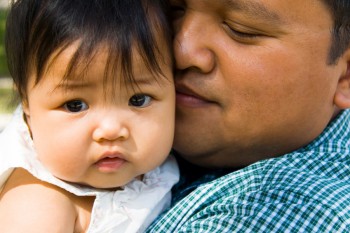Detention is still harming children at the US border
Dr. Charles Hui, chief of infectious diseases, Children's Hospital of Eastern Ontario, Ottawa, Canada
Deborah Zion, chair, Victoria University Human Research Ethics Committee, Melbourne, Australia
This op-ed first appeared in The British Medical Journal.
We must use all means possible to secure their release
Healthcare practitioners who are dedicated to making the lives of children and their families better watched in disbelief as the ongoing situation of separating children from their parents unfolded at the southern border of the United States. We know that for many families the migration journey is traumatic and has lasting effects; separation and detention simply compound this trauma. Many healthcare workers are mindful of the clear guidance set out in the Declaration of Tokyo,1 which states: “The physician shall not countenance, condone or participate in the practice of torture or other forms of cruel, inhuman or degrading procedures.”
Global outrage led President Trump to sign an executive order on 20 June that will keep more families together. At the same time, the order provides more authority to detain families until the end of their administrative proceedings. The US government is now seeking the power to detain immigrant children beyond 20 days and potentially indefinitely.2 This is clearly a way to deflect international criticism without considering the best interests of children and their families. One harm has been traded for another.
International research is clear: children exposed to the prison-like conditions typical of immigration detention experience severe distress and fear, as well as a decline in cognitive, physical, and emotional functioning that persists long after detention.3 Regardless of the conditions of detention, these changes can occur after only a short period and can have lifelong effects.
No child deserves this treatment. It is never in a child’s best interests and is also unnecessary given the international consensus on viable community based alternatives to detention of migrants.45 It is wholly unacceptable that children—and their families—who have committed no crime, should be incarcerated as a form of deterrence.
Conflicted loyalties
Clinicians who see these children in detention often face ethical dilemmas. Although they aim to provide high quality care for this vulnerable group, they struggle because care in detention centres is not consistent with the United Nation’s Convention on the Rights of the Child6 or in the child’s best interest. This reminds us that ensuring the right to health goes beyond clinical treatment and that healthcare providers also have obligations to ensure the conditions are maintained in which humans can flourish.
Healthcare practitioners can also experience dual loyalties to their employer/state and their patients by simply becoming part of the detention system. Many fear that speaking out will cause them to lose access to those at risk.7 They therefore face a difficult choice between complicity with the system to maintain access to those needing care, or advocating on their behalf and risking losing this lifeline to vulnerable patients.
Governments have even gagged doctors, preventing them from fulfilling their professional and ethical obligations. In Australia, for example, in 2015 the government established the Border Force Act, which made it a crime punishable by two years’ imprisonment for healthcare providers to disclose what they had witnessed in detention centres.89 The act was amended in 2016 after a challenge brought to the High Court by Doctors for Refugees.10
Action for change
What can we do to ensure that migrating children and their families have access to healthcare with dignity, humanity, and compassion?
Firstly, we must advocate against the separation of families at borders and the detention of children in immigration centres. Although the US situation is graphic and disturbing, there is a worldwide and long history of this practice. Instead of demonising those who seek our protection, we must be mindful of the 1951 Refugee Convention,11which stipulates that seeking asylum is lawful.
Secondly, we must stand in solidarity with our colleagues in the US and around the world who are on the front lines of this struggle for rights based, compassionate, and humanitarian care for migrants. It is essential to have transparent and independent monitoring of the healthcare of detained children, and indeed all those detained while seeking refuge across national borders. We must use all possible means to ensure their release, including the courts and human rights instruments such as the UN’s optional protocol to the convention against torture (OPCAT).12 This treaty is designed to ensure transparency and accountability in places of detention.
Finally, we must be guided by what is best for the children and families and for all those fleeing war, torture, and discrimination. Migration is a long standing and complex issue with many causes and outcomes. At this critical moment it is important to reaffirm that the primary obligation of all healthcare practitioners is the health and wellbeing of anyone needing our care.
Copyright
The Canadian Paediatric Society holds copyright on all information we publish on this blog. For complete details, read our Copyright Policy.
Disclaimer
The information on this blog should not be used as a substitute for medical care and advice. The views of blog writers do not necessarily represent the views of the Canadian Paediatric Society.
Last updated: Jul 16, 2018

